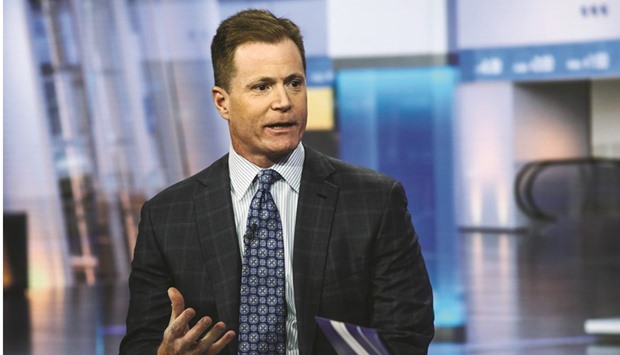Just when Treasuries are rallying again, Pacific Investment Management Co’s Mark Kiesel says bond investors have it all wrong.
US government debt surged on Friday after data on US retail sales and wholesale prices in July fell short of forecasts.
Traders pared wagers on the Federal Reserve’s interest-rate path, with futures prices indicating less than a 50% chance of a rate hike before March 2017.
That doesn’t sit well with Kiesel, Pimco’s chief investment officer for global credit, who co-manages the $86.8bn Pimco Total Return Fund. He said the firm is “de-emphasising” Treasuries because the market is too pessimistic about the likelihood of a rate increase, favouring alternatives like corporate bonds instead. “We’re seeing more evidence of broader-based inflation - our view is the Fed will ultimately move,” Kiesel said on Friday in an interview on Bloomberg Television. “The market right now isn’t pricing the Fed to move.”
The Fed is looking for inflation to rise towards its 2% target as it aims to tighten policy.
Those efforts have been hampered by signs of global economic weakness, as the easing measures adopted by central banks abroad have driven investors into comparatively higher-yielding Treasuries.
Demand for US debt has been resilient since yields surged on August 5 following a stronger-than-forecast July jobs report.
The Total Return Fund boosted its stake in US government debt to a 25-month high in July as benchmark 10-year yields tumbled to a record low.
Futures showed the implied probability of a September rate hike at 16% Friday, down from 26% a week earlier.
Fed officials most recent projections call for one increase this year, after liftoff from near zero in December. Officials have twice cut their rate forecasts in 2016.
San Francisco Fed President John Williams said Thursday that an increase this year is warranted. St Louis Fed President James Bullard said on Friday that he sees a single rate increase over his policy horizon.
Friday’s producer price and retail sales reports add to speculation that any pickup in inflation is on shaky ground. The 0.4% drop in the producer-price index, the biggest since September, followed a 0.5% gain the prior month.
Retail purchases stalled in July, compared to the 0.4% rise predicted in a Bloomberg survey. Excluding cars, sales retreated 0.3%, the most since the start of the year.
“Both data were much worse than expected - we have Treasury prices firming across the curve,” said Christopher Sullivan, who oversees $2.3bn as chief investment officer at UN Federal Credit Union in New York. “There’s still demand for value represented in US Treasuries.”
All three US bond and note sales this week were well- received, with a $23bn 10-year debt offering on August 10 drawing the lowest auction yield in four years after a three- year sale a day earlier attracted the strongest demand of 2016.
The US will sell $14bn of five-year Treasury Inflation-Protected Securities on August 18. A report two days earlier is forecast to show the US consumer price index rose 0.9% from a year earlier, according to a Bloomberg survey of economists.

Kiesel: Seeing more evidence of broader-based inflation.
